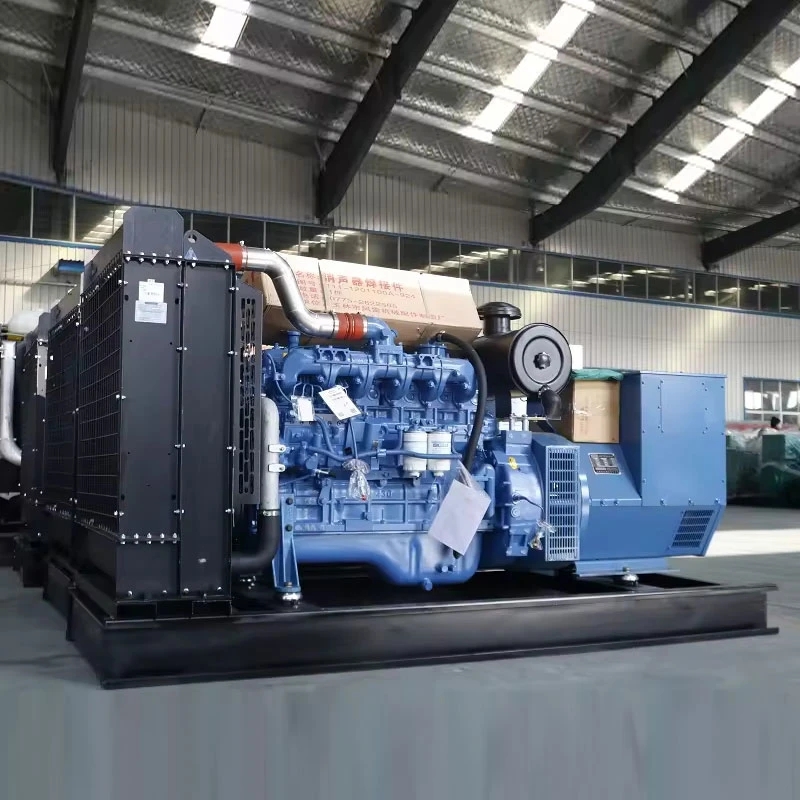bojinsi (EMC) testing is a critical process for ensuring that electronic devices and systems operate correctly in their intended environment without causing interference to other devices. To conduct EMC testing effectively, a stable and reliable power source is essential. Diesel generators have long been a popular choice for providing power during EMC testing due to their robustness, reliability, and ability to deliver consistent power output. In this article, we will explore the role of diesel generators in EMC testing, their key benefits, considerations for selecting the right generator, and best practices for ensuring successful EMC testing operations.
The Importance of Reliable Power in EMC Testing
EMC testing involves subjecting electronic devices to electromagnetic fields to assess their susceptibility to interference and their emissions levels. To accurately measure and analyze the electromagnetic performance of a device, it is crucial to maintain a stable and clean power supply throughout the testing process. Any fluctuations or interruptions in power can introduce unwanted variables that may affect the test results and compromise the accuracy of the findings.
Diesel generators are well-suited for providing reliable power during EMC testing due to their inherent characteristics. Diesel engines are known for their durability, efficiency, and ability to deliver consistent power output over extended periods. Unlike other power sources that may be susceptible to voltage fluctuations or grid failures, diesel generators can operate independently, ensuring uninterrupted power supply during testing sessions.
Key Benefits of Diesel Generators for EMC Testing
1. Reliability: Diesel generators are renowned for their reliability and robustness. They can provide continuous power for extended periods without experiencing performance degradation, making them ideal for long-duration EMC testing sessions.
2. Stable Power Output: Diesel generators offer stable power output, which is crucial for maintaining consistent test conditions and ensuring accurate results. Variations in voltage or frequency can impact the performance of electronic devices under test, leading to erroneous conclusions.
3. Fuel Efficiency: Diesel engines are known for their fuel efficiency, making them a cost-effective option for powering EMC testing equipment. The high energy density of diesel fuel allows generators to operate efficiently for prolonged periods without frequent refueling.
4. Portability: Diesel generators are available in a wide range of sizes and configurations, making them suitable for various testing environments. Whether testing in a laboratory setting or a remote location, diesel generators can be easily transported and set up to provide power where needed.
Considerations for Selecting a Diesel Generator for EMC Testing
When choosing a diesel generator for EMC testing, several factors should be taken into consideration to ensure optimal performance and reliability. Some key considerations include:
1. Power Output: Determine the power requirements of the EMC testing equipment, including the maximum load and any potential power spikes during testing. Select a diesel generator with a power output capacity that exceeds the total power demand to accommodate fluctuations and ensure stable operation.
2. Voltage and Frequency Stability: Look for a diesel generator that can maintain stable voltage and frequency levels within tight tolerances to prevent fluctuations that could impact the accuracy of test results. Voltage regulation and frequency control are critical factors to consider when selecting a generator for EMC testing applications.
3. Emissions Compliance: Ensure that the diesel generator meets environmental regulations and emissions standards to minimize its impact on the testing environment. Low-emission engines are recommended for use in indoor testing facilities to maintain air quality and comply with regulatory requirements.
4. Noise Level: Consider the noise level produced by the diesel generator, especially if testing is conducted in a sound-sensitive environment. Select a generator with sound attenuation features or opt for models specifically designed for quiet operation to minimize disruptions during testing.
5. Fuel Efficiency: Evaluate the fuel consumption rate of the diesel generator to determine its operational costs over time. Choose a generator with high fuel efficiency to reduce operating expenses and ensure uninterrupted power supply during extended testing sessions.
Best Practices for Using Diesel Generators in EMC Testing
To maximize the performance and reliability of diesel generators in EMC testing applications, consider implementing the following best practices:
1. Regular Maintenance: Conduct routine maintenance checks and inspections on the diesel generator to ensure optimal performance and reliability. Check oil levels, fuel filters, air filters, and cooling systems regularly to prevent breakdowns and maintain efficiency.
2. Load Testing: Perform load testing on the diesel generator to verify its capacity and stability under varying load conditions. Ensure that the generator can handle peak loads without compromising voltage or frequency levels to maintain consistent power output during testing.

3. Fuel Quality: Use high-quality diesel fuel to prevent contamination and ensure proper engine operation. Monitor fuel levels and replenish supplies as needed to avoid interruptions during testing sessions.
4. Emergency Preparedness: Develop an emergency response plan in case of generator failure or power outage during EMC testing. Have backup power sources or contingency measures in place to minimize downtime and prevent data loss.
5. Environmental Considerations: Ensure proper ventilation and exhaust management when using diesel generators in indoor testing facilities to maintain air quality and comply with safety regulations. Implement soundproofing measures to reduce noise levels and minimize disturbances in the testing environment.
Conclusion
Diesel generators play a crucial role in providing reliable and stable power for EMC testing applications. Their robustness, reliability, and ability to deliver consistent power output make them a preferred choice for powering testing equipment in various environments. By selecting the right diesel generator based on power requirements, voltage stability, emissions compliance, noise levels, and fuel efficiency, organizations can ensure successful EMC testing operations with accurate and reliable results. By following best practices for maintenance, load testing, fuel quality, emergency preparedness, and environmental considerations, organizations can maximize the performance and longevity of diesel generators in EMC testing setups.
